OUR SERVICES
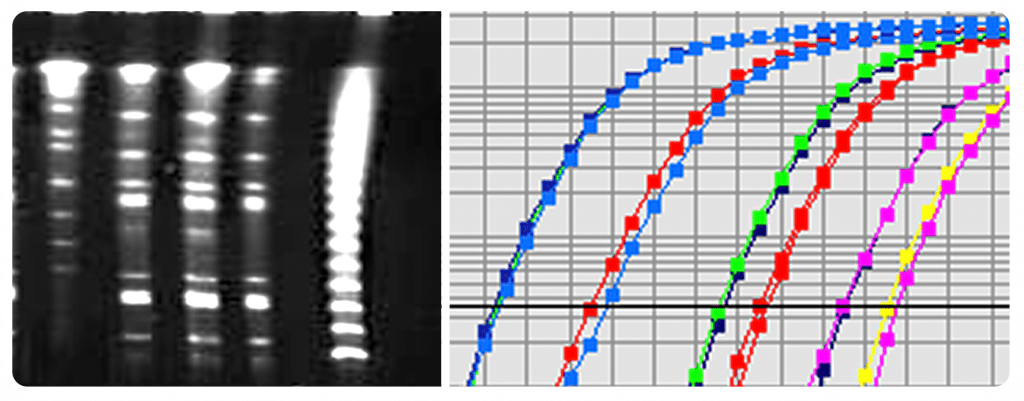
PLANT PATHOGEN DETECTION AND IDENTIFICATION
This service is offered for the direct detection of the pathogen in field samples or its isolation and identification from infected plants, either symptomatic or asymptomatic. Detection is based on PCR methods (conventional, quantitative (qPCR), viable-quantitative-PCR (v-qPCR) or by serological methods (ELISA). Pathogens can be isolated in suitable growth media and identified by microbiological, serological and molecular methods (ribotyping). In addition, we offer optimization of molecular techniques for diagnosis of bacterial and fungal pathogens of interest. We are specialized in plant pathogenic bacteria mainly quarantine pathogens in the EU such as Xylella fastidiosa, Xanthomonas citri, Xanthomonas arboricola pv. pruni, Candidatus Liberibacter spp. (HLB), Pseudomonas savastanoi, Erwinia amylovora, and other pathogens such as Agrobacterium tumefaciens (Rhizobium radiobacter). In addition, we use and develop tools for plant pathogenic fungi on demand.
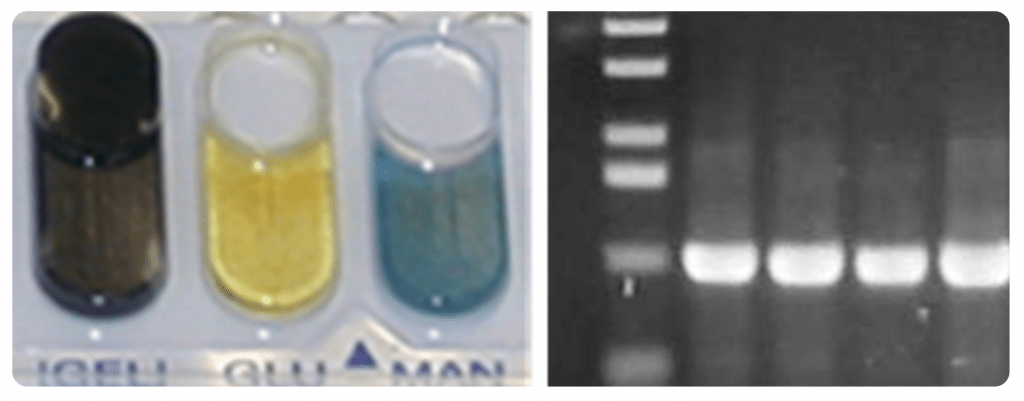
DEVELOPMENT OF STRAIN SPECIFIC NUCLEIC-ACID BASED TOOLS FOR MONITORING MICROBIAL PESTICIDES AND BIOFERTILIZERS
Molecular tools for monitoring bacterial and fungal pathogens in plants, water, surfaces, soil and other matrices can be developed. Strain identification and monitoring is necessary for patenting and for traceability studies in food and in the field, and to improve formulation. We offer a platform based on non-invasive (non GMO) techniques targeted to strain-specific marker genes in nucleic-acids (DNA or RNA), using PCR (conventional or quantitative qPCR). In a first stage, we look at the genome to find strain-specific markers, either by re-sequencing or by DNA fingerprinting (U-PCR, RAPDS, RFLPs…). Then, primers are designed and validated by conventional PCR. Finally, a real time PCR protocol is developed that is evaluated and validated in real conditions (plant material, soil, etc.).
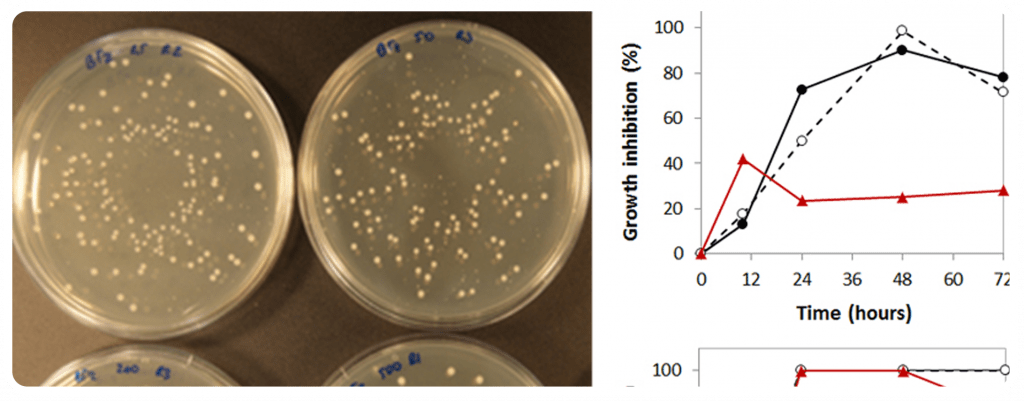
QUALITY CONTROL OF MICROBIAL PESTICIDES
The main objective of this kind of service is to ensure the quality of a microbial biopesticide or biofertilizer in terms of declared or undeclared components, and cell viability. Many microbial pesticide products are often contaminated with non-desirable microorganisms that can compromise or interfere with the active ingredient. Tests include quantification of active ingredient (strain(s)) and contaminants (e.g. coliforms), viability, efficacy of control of a given pathogen. The shelf-life of formulations is also evaluated at long time or under different storage conditions.
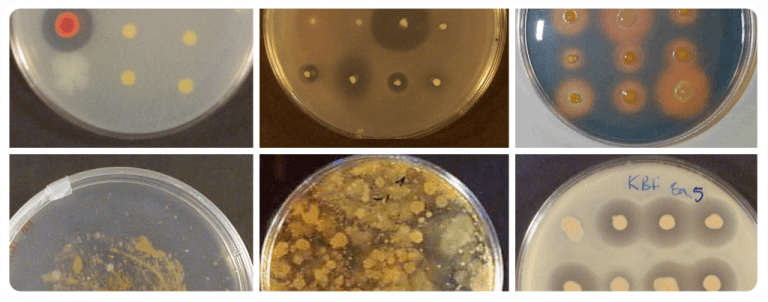
CHARACTERIZATION OF MICROBIAL PESTICIDES
Accurate taxonomic identification of the microbial species and characterization of biocontrol agents and biofertilizers is necessary for registration and for establishing its mechanism of action. We offer a wide range of systems including microbiological (API, BIOLOG), biochemical (metabolites profile by HPLC, mass spectrometry, etc.) and DNA fingerprinting (gene profiling for biosynthetic genes of antimicrobials, RAPD, PFGE, MLST, etc.) or genome sequencing. Preliminary toxicity testing like phytotoxicity, hemolytic activity, genotoxicity (Ames test) and nematode toxicity (Caenorhabditis elegans test), are also performed on request.
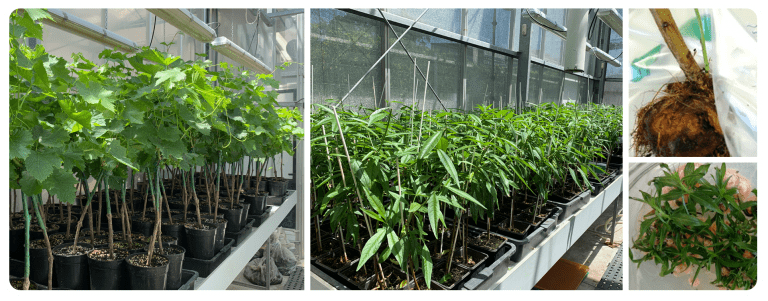
PREVENTION AND CONTROL OF BACTERIAL AND FUNGAL DISEASES
Detection of the focus of contamination by plant pathogens in productive processes (e.g. propagation of plant material in nurseries, in vitro culture contaminations and endophytes, etc.). Advise in the design of strategies for bacterial and fungal disease control and prevention in field crops and in nurseries. Recommendation of fungicide, bactericide and sanitation and disinfection procedures. This service can be connected to the evaluation in vitro, ex vivo or in planta of the efficacy of the most suitable antimicrobial or disinfectant compounds, with special attention to the integrated or organic production schedule of the company or cooperative.
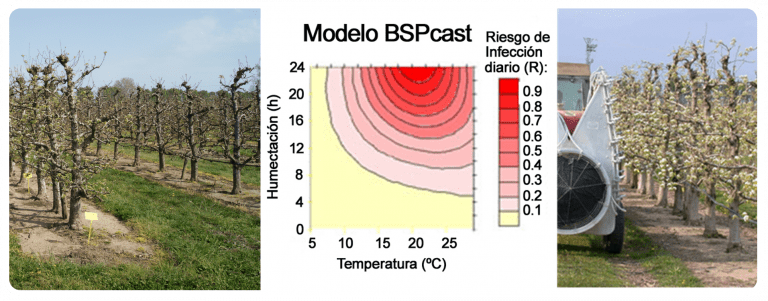
FORECASTING SYSTEMS AND ADVICE IN INTEGRATED CROP PROTECTION PROGRAMS (IPM)
This service include the analysis of risk of infection using forecasting systems disease management to minimize pesticide use (fungicide or bactericide) treatments. We have experience in developing disease-forecasting models based on temperature-wetness effect on disease intensity, and evaluation and validation (brown spot of pear, apple scab, walnut blight and fire blight). These systems can be used for disease-risk mapping in a given geographical area, to help in disease monitoring sampling, or to schedule pesticide applications.
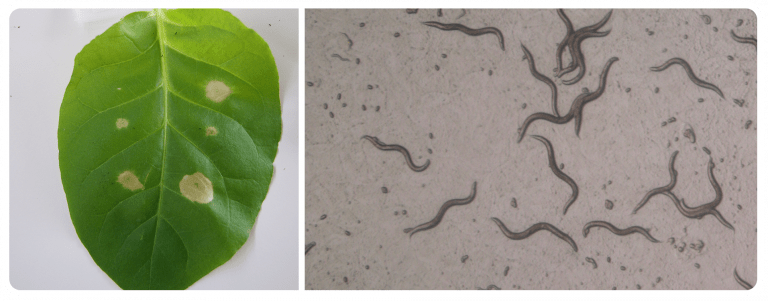
PRELIMINARY TOXICOLOGY ASSESSMENT
In the process of development of a biopesticide it is important to have preliminary data on possible toxicity. We offer a platform consisting of phytotoxicity and animal toxicity and genotoxicity. Phytotoxicity tests are based on tobacco leaf infiltration, alkalization of tobacco cell cultures, pollen germination; animal toxicity determines LD50 and MLD in the nematode Caenorhabditis elegans, and genotoxicity with Ames test with Salmonella strains. These assays are not a substitute of the regulated tests that are needed for registration of a pesticide, but are a guide to select lead active ingredients or formulations in a development pipeline.
